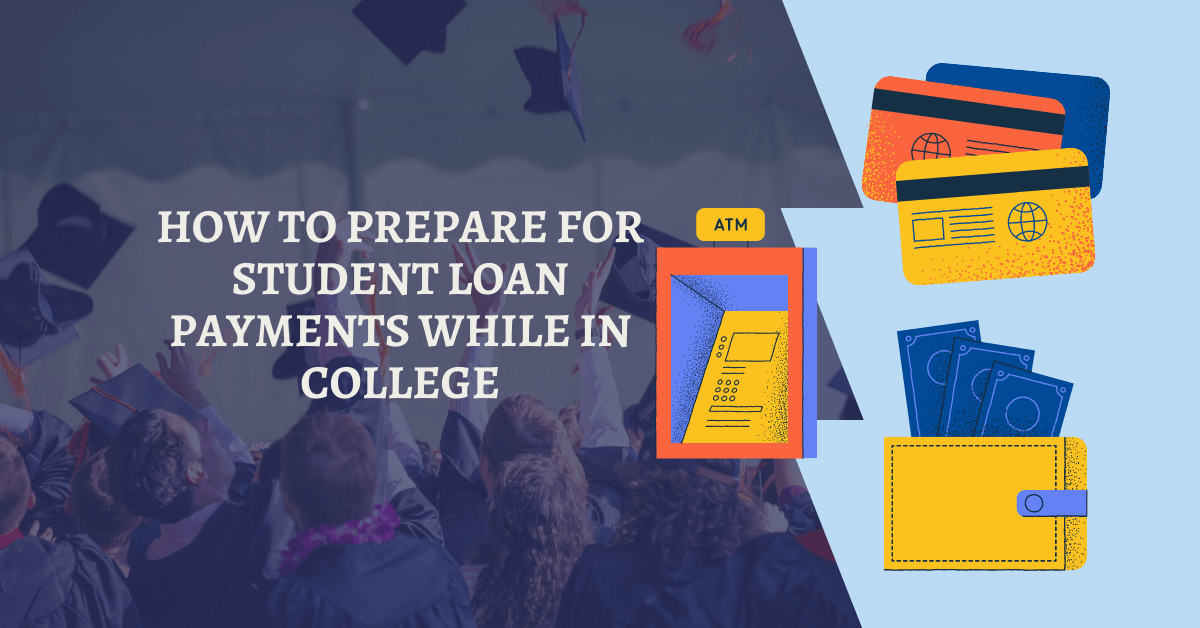How to Prepare for Student Loan Payments While in College
 Education is an important step towards the rest of your life. Whatever career you choose, a college education makes things much easier for you. However, it doesn’t come cheap. In fact, education usually ends up being one of the most expensive ventures you go through early in life.
Education is an important step towards the rest of your life. Whatever career you choose, a college education makes things much easier for you. However, it doesn’t come cheap. In fact, education usually ends up being one of the most expensive ventures you go through early in life.
Many college graduates find themselves suffering through a large amount of student loan debt after college. This is unfortunately common, due to financial issues and a lack of planning. Today, let’s talk about how to prepare for your student loans. There are plenty of things you can do besides simply saving up money.
Choose Your College Carefully
Don’t rush into the first convenient college you see. There are many factors to consider when picking your college.
Cost of Attendance
The first thing you should consider is how much it costs to attend. While it’s important to go for the best courses, you have to stay within your means. Calculate the long-term costs of staying in your college choices.
Colleges offer different ways of paying tuition fees. Some colleges offer monthly, quarterly or annual payments, each with different benefits. Check if your textbooks (a heavy expense for many) are required or if you could just find free resources online.
Of course, the cost of attendance isn’t just limited to tuition or learning materials. Other questions to ask include:
· Is the college far away? If it’s far away, how much does transportation cost?
· Are there dormitories? If not, are there apartments nearby for you to live in?
· If you aren’t living with your parents, can you afford rent?
· If the college is nearby and convenient, are their programs a good fit for you?
· Do they have a canteen or nearby food places? If you pack your own lunch, are there groceries nearby?
These are only some of the practical questions you have to consider. Remember, it’s not just learning you have to worry about. It’s daily living. These factors will define how you save money while in college.
Scholarships
Next, you have to see what their scholarship programs offer. If a college gives discounts to top achievers, take stock of your capabilities. If you think you’re a contender for a scholarship, go for it. Certain scholarships may even offer more benefits than just discounts. Find a college that best suits your skillset and financial means.
Scholarships are important since they lessen a lot of the worries you may have about student loans. For special cases, some even have their entire college education paid for. It’s also more incentive for you to study and take your education more seriously. If you are a top athlete, ask your coach for advice on which colleges are good for you.
Look For Part-Time Jobs
If your schedule allows for it, a part-time job can help you pay off your student loans early. Once you apply for a college, look around the neighborhood. There are usually places that offer jobs for high school graduates. This can range from the fast food industry to retail jobs.
For those who own laptops, online jobs are a great option. More companies are now recognizing the benefits of remote work. For working students, that means they now work from the comfort of their own homes. It also fixes a lot of the transportation issues college students may have.
Depending on the job, shifts are also easier to plan around your classes. Certain jobs even offer asynchronous work schedules. Asynchronous means they are output-based. That allows you to dictate when you work, and the only scheduling rule to follow is the deadline.
All this aside, remember that a job should never take priority over your education. Paying for your education is the primary goal.
Arrange Your Loan Payment Plans
College loans can have different payment plans. These plans change things like how much you pay monthly for the loan and how many years you will be paying it for. Loan plans allow for flexibility in how you pay your loans.
Gradual payment plans will scale with your career. Low monthly payments during your first few years are expected. That monthly payment becomes higher as you gain promotions or higher-income jobs. Gradual payment plans are handy for those who are confident in their career trajectory. Savings also alleviate the costs of higher monthly payments down the road.
Extended repayment plans spread out your payment over a longer period of time. For example, a 10-year payment plan can be changed into a 20-year plan. For those struggling financially, this plan alleviates their financial issues by essentially halving the monthly payments.
Check If You Have Loan Forgiveness
Loan forgiveness, in layman’s terms, releases you from the obligation of paying your student loan debts. Only direct loans from federal institutions qualify for loan forgiveness. Private loans do not have this benefit.
Loans are forgiven by either working in public service or consistent payment of the loan over a long period of time. It’s important to review your loan forgiveness options. Long-term planning of your loan payments relies on whether or not you want to make use of these loan forgiveness programs.
The one caveat is that loan forgiveness guarantees you won’t be paying off your loan early. How much that matters is up to you.

